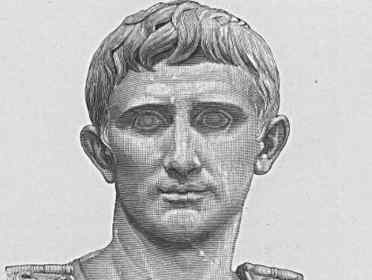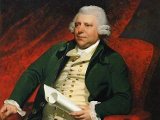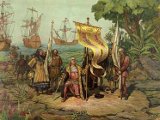Beginning of the Roman Empire - Transition from Republic to Empire

The End of Roman Republic and Beginning of the Roman Empire
The beginning of the Roman Empire, a 500-year long period that followed the Roman Republic is traditionally dated to 27 BC when Octavian (63-14 BC) was granted the title Augustus by the Roman Senate and became the first Roman Emperor. The transition from republic to empire, however, started two decades earlier.
Rise of Julius Caesar
The Roman Republic experienced dramatic changes from the beginning of the 1st century BC. The Roman Senate, the chief governing council of the Roman Republic turned out to be ineffective in administration of the vast “empire“ and the victorious generals started to compete for power which resulted in a series of civil wars and political crises. One of those generals, Julius Caesar (c.100-44 BC) decisively defeated his rival Pompey and established himself as a dictator for life becoming de facto a monarch without a title.
Rivalry between Octavian and Mark Antony
Whether Caesar would have completed the transition from republic to empire if the conspiracy against him would not succeed is a matter of speculation but interestingly, the Roman philosopher and statesman Cicero (106-43 BC) believed that the republic was destroyed after Caesar’s victory in the civil war. He was actually right although he did not live to see the Roman Republic collapse. Caesar’s assassins failed to reinstate the republic despite the fact that is was proclaimed restored because all Caesar’s reforms were confirmed. Octavian, Caesar’s great-nephew and designated heir immediately set out for Rome to claim the inheritance but his claim was challenged by Mark Antony who as sole Consul controlled both the government and the Roman legions. However, Mark Antony’s war against the Senate to revenge Caesar’s assassination enabled Octavian to gain the Senators’ support against his rival.
Second Triumvirate and Renewed Hostility between Octavian and Mark Antony
Octavian defeated Mark Antony at Mutina (43 BC) in the name of the Republic but as the Senate did not grant him honors he felt he had deserved, he turned against the Senate. He joined with Mark Antony and Lepidus with whom he formed the so-called Second Triumvirate which defeated the army of Caesar’s assassins Brutus and Cassius at Philippi in Macedonia in 42 BC. The triumvirs afterwards divided the Roman provinces into three spheres of influence with Octavian in the West, Mark Antony in the East and Lepidus in North Africa. Absence of his “co-rulers“ enabled Octavian to consolidate his power in Rome, while Mark Antony’s affair with Cleopatra helped him further strengthen his position by emphasizing the threat of Oriental despotism to the republic. With Lepidus gone (he was deposed as triumvir in 36 BC), the war for domination over the Roman world between Octavian and Mark Antony became only a matter of time.
Octavian’s Victory Over Mark Antony and Completion of the Transition from Republic to Empire
Victory in the Battle of Actium against the fleet of Cleopatra and Mark Antony in 31 BC followed by the lovers’ suicide made Octavian an undisputed ruler of all Roman provinces. He returned to Rome victorious in 29 BC and skillfully accumulated power in his hands under the facade of restoring the state to the people. He never openly claimed the superior position in the state but let the others confirm it for him. The Senate made him Imperator (commander-in-chief of a victorious army), then Princeps (the First Citizen) and finally Augustus (the Revered) in 27 BC. By the time of his death in 14 BC, he was emperor in the full meaning of the word and the transition from republic to empire was completed.




